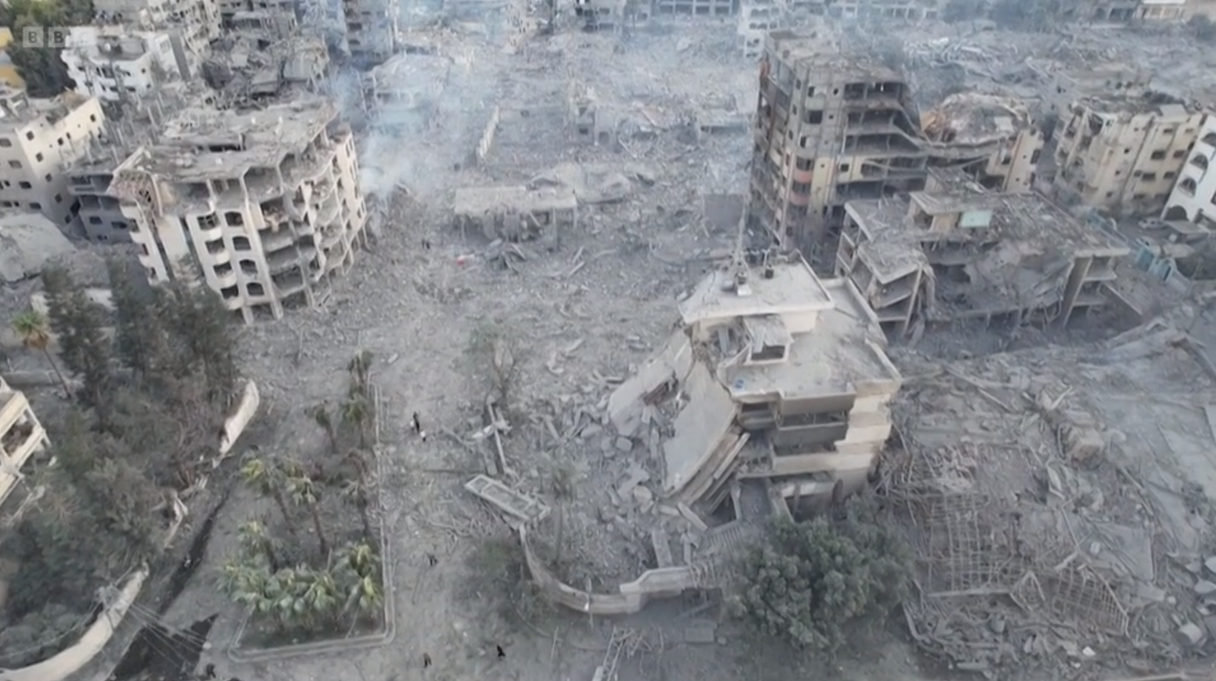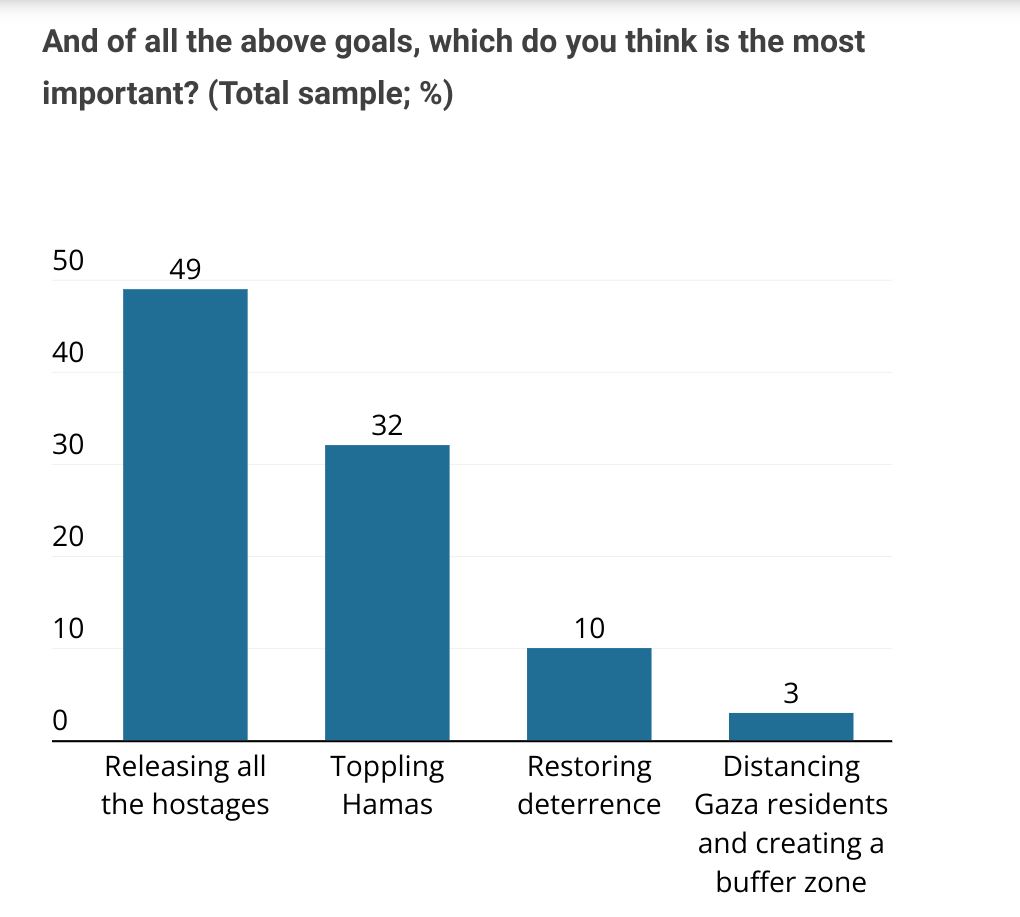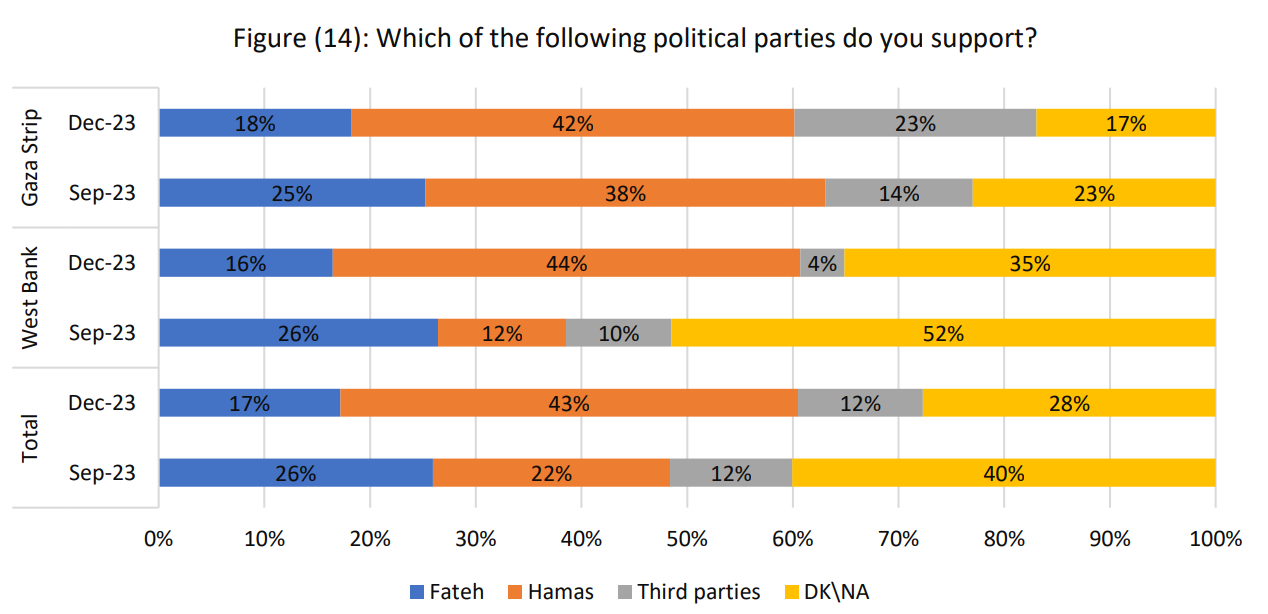Justifying the unjustifiable: Israel had no other option in its response to October 7th
• public
Welcome to One Small Detail, a newsletter on Zionism. If you’d like to sign up to receive new posts over email, you can do so here.
This post is available in French here.
This post is part of a series looking at the arguments used by Israelis and Zionists to justify the current assault on Gaza. Some of these arguments may be used in bad faith by some, especially in the Israeli government and military, but I can say with full certainty that they are genuinely believed by many—including by close friends and relatives.
Almost every conversation I have with Israeli or Zionist friends about the war goes the same way:
- I express my horror at Israel’s response to the October 7th attacks, my despair and sadness and anger at the deaths and destruction in Gaza.
- My interlocutor questions my empathy for Israeli victims and survivors of the Oct 7th attacks.
- I clarify that I am sad and horrified by what Israelis faced on October 7th (my cousin was camping in Southern Israel at the time and could have easily been among the dead or kidnapped; some people I studied with lived in one of the attacked kibbutz and lost family members). I also say that no matter how horrific Hamas’ attacks were, nothing justifies the violence of the assault Israel launched against Gaza.
- My interlocutor says “Well, what was Israel supposed to do? It has to respond to these attacks!"
In this post, I address the claim that Israel's response had to look the way it looks now: thousands of civilians killed, millions displaced, unprecedented destruction, unspeakable suffering.
The justifications for all-out war usually point to one of three reasons, or often, all three at the same time:
- Israel must free the hostages captured by Hamas and other militant groups on October 7th
- Israel must destroy Hamas to ensure an attack like October 7th cannot occur again
- Israel must restore deterrence, and assert its strength to prevent future attacks and protect its citizens
Yet when we look closer, these arguments do not hold up to scrutiny.
Leaving morality and context aside
In this post, I will not discuss the morality of Israel's current war. I want to focus on the strategic and security arguments because those are the ones that lead so many to support the war, even if they hate Netanyahu and Israel's far-right.
Similarly, I will not dive into the situation before October 7th and how Israel could have prevented the attacks (for example by not propping up Hamas as a way to destroy the prospect of a Palestinian state, not diverting military resources from the Gaza border to the West Bank to better protect settlers; or undermining the Palestinian Authority when it attempted to advance Palestinian rights non-violently). There is little doubt that Israel could have prevented October 7th. But these points do not answer the genuine questions so many have, which is: regardless of happened before October 7th and Israel's oppression of Palestinians, Israel had to respond on October 8th. What was Israel supposed to do?
So here I'll focus exclusively on security and on the response to October 7th.
Reason #1: Israel must free the hostages
Israel deeply values the lives of its citizens. Despite a toxic militaristic culture and almost systematic resort to violence, minimizing Israeli civilian and military deaths is always of paramount importance to Israeli society. We see this each time Israeli soldiers are captured by militant groups.
When on October 7th, Hamas and other militant groups kidnapped 240 hostages, to most Israelis, returning these hostages had to take priority over other war goals.

Yet all evidence point to two things:
- Israeli military actions are clearly failing to release hostages. It's been over two months of all-out war and only a single hostage was rescued by Israeli soldiers, while 109 were freed as part of exchange deals with Hamas.
- The way Israel is waging war is actively endangering the hostages. Some of the hostages released in the exchange deals said that they were under constant threats of Israeli bombing. It is also fair to assume that out of the 21 hostages who are believed to have died in captivity, some were killed in Israeli bombings. And last week, Israeli soldiers shot and killed three hostages as they were trying to escape. The hostages were shirtless and waving a white flag, further demonstrating how indiscriminate and brutal Israeli methods are.
Some say that Israel needed to put a lot of military pressure on Hamas to be in a better negotiating position. Indeed, each Israeli hostage was exchanged for 3 Palestinian prisoners, a number far lower than previous exchanges. But this can never justify endangering the very lives of the hostages you are claiming to fight for.
Reason #2: Israel must destroy Hamas
There is a broad consensus in Israeli society that following the atrocities of October 7th, Israel must do everything it can to "destroy" Hamas once and for all.
But this idea that you can destroy a group like Hamas through purely military means is contrary to the reality of warfare and politics.
Groups like Hamas thrive on the despair and anger of young people, who they recruit to their ranks. And the current war is creating more despair and anger in Gaza than ever. Israel's current strategy has led to the displacement of millions of Gazans, the death of thousands of civilians, and large-scale hunger. The amount of suffering in the Gaza Strip is unspeakable. Israel has killed 20,000 people, a full 1% of the Gaza population. Everyone in Gaza has lost relatives, been injured, or lost their home—often all three.
There is little doubt that as soon as the violence ends, more young people than ever—the fathers, brothers, sons of those killed during the war—will flock to join Hamas or other militant groups. Even if Israel manages to kills the leaders of Hamas and drastically reduce its military capabilities, there will be another organization to recruit these young people and channel their anger against Israel. Ben Wallace, former UK Minister of Defense and a member of the Conservative Party, said that Israeli actions in Gaza "will fuel the conflict for another 50 years" and are "radicalising Muslim youth across the globe."
And indeed, popular support for Hamas has increased since the beginning of the war (most of the Palestinians polled seemed aware of the scale of the atrocities committed on October 7th).

Robert Pape, security researcher and professor at the University of Chicago, points out that large-scale violence to destroy a group like Hamas almost always backfires:
- When Israel invaded Southern Lebanon in 1982 with the aim of destroying the PLO, it didn't just fail to destroy the PLO—the large-scale destruction Israel left in its wake led to the creation of Hezbollah.
- When Israel invaded Southern Lebanon for the second time in 2006, this time to target Hezbollah, it again failed to achieve its objective and Hezbollah arguably came out of the war stronger.
- When the US invaded and occupied Iraq, its attempts at fighting local guerrilla groups backfired and eventually led to the rise of ISIS.
And of course, the history of Israel's military occupation of the West Bank and Gaza is one long series of failures to defeat Palestinian militant violence. The only time Israel managed to neutralize a major Palestinian militant group, the PLO, it was by engaging in a serious political process. That's when the PLO relinquished its armed struggle against Israel.
When faced with these facts, the "Israel must destroy Hamas" crowd points to the defeats of ISIS or to the capitulation of Nazi Germany after the bombing of Dresden. These show, they say, that overwhelming violence can lead to military and political victory. But these analogies do not work: the devastating campaign that defeated ISIS in Mosul would not produce the same outcome against Hamas: the ISIS fighters in Mosul were largely foreigners who were fighting Kurdish and Iraqi armies, with the support of an international coalition; while Hamas has deep roots in Gaza, it recruits by exploiting the traumas of Israeli violence—which will continue even after the current war—and it fights an enemy that is widely considered a colonizer and an oppressor. And while there is still no consensus on whether the bombing of Dresden played any role in defeating Germany, there is no doubt that today, the mass killing of civilians in Dresden would be considered an egregious war crime.
In short, the violence that Israel has unleashed against Gaza since October 7th is very unlikely to lead to the destruction of Hamas. Even if it does, another group will rise to replace Hamas and continue threatening Israelis.
Reason #3: Israel must restore its deterrence
The final argument is that a lack of forceful response would encourage more attacks like October 7th. Only overwhelming violence can show the world that there is a very real price in attacking Israel.
Indeed, after Hezbollah captured Israeli soldiers in 2006, Israel used overwhelming violence against Hezbollah and Southern Lebanon. Hezbollah's leader Hassan Nasrallah later said: “If there was even a 1 per cent chance that the 11 July capturing operation would have led to a war like the one that happened, would you have done it? I would say no, absolutely not, for humanitarian, moral, social, security, military and political reasons.” It can be fair to assume Israel's overwhelming violence in Gaza after October 7th did deter Hezbollah from entering the war.
But this, again, is a simplistic and short-term approach: this war is creating more hatred for Israel and Israelis than we've seen in a generation. The rise in antisemitic incidents around the world is only the tip of the iceberg. A whopping 96% of Saudis now believe that Arab countries should cut all ties with Israel, and 40% now support for Hamas—up from just 10 percent several months ago. The attacks by the Houthis of Yemen forced the US military to step in to protect Israel and showed that new groups are now willing to target Israel. The United States is seeing the largest and broadest pro-Palestinian mobilization in U.S. history, and young Americans are more supportive of Palestinians than Israelis in the current war.
Israel's standing is getting worse and anti-Israeli hatred is increasing in direct correlation with the amount of violence the IDF is deploying in Gaza. This war is very unlikely to make Israel safer.
What then?
The reasons used to justify Israel's unleashing of violence against Gaza do not hold up to scrutiny. This is especially true when there was an obvious alternative, one that would have achieved Israel's security objectives without inflicting large-scale violence and destruction on Gazans.
There is close to a consensus among counter-terrorism experts that beating groups like Hamas requires two complementary elements: a sustained campaign to degrade its military capabilities and a political change to undermine its power among the populations that support it.
Israel, then, could have responded to October 7th with a protracted counter-terrorist campaign. Over years (not mere weeks or months), Israel could have built (or re-built, rather) its capacity to collect high-quality intelligence to identify, locate, and target the Hamas operatives in Gaza. Israel could have then targeted high-value Hamas figures with surgical airstrikes and special forces incursions into Gaza. This would include targeting both Hamas leaders and the foot soldiers who perpetrated the October 7th massacres.
Israel used this exact strategy in the wake of the second intifada in the early 2000s. The campaign effectively led to a sharp decrease in Hamas' ability to kill Israelis. The strategy was so effective that for a while, Hamas hid the name of its leader to prevent him from being targeted.
And in parallel, Israel would have had to open up a viable political alternative to Hamas for Palestinians.
For Robert Pape, the University of Chicago professor, the only way to create lasting damage to terrorists is "to combine, typically in a long campaign of years, sustained selective attacks against identified terrorists with political operations that drive wedges between the terrorists and the local populations from which they come."
For Zach Beauchamp, driving wedges means "addressing the legitimate grievances of the Palestinian people, which Hamas exploits for their own vicious purposes." Beauchamp adds: "To actually stop terrorism, Israel needs to reverse moves toward de facto annexation of the West Bank. It needs to cease settlement expansion, take steps to improve the West Bank economy, crack down on settler violence, and scale back the network of checkpoints that currently make life extremely difficult for ordinary West Bank citizens."
Audrey Kurth Cronin, the Director of the Carnegie Mellon Institute for Strategy and Technology and the author of How Terrorism Ends, agrees. In parallel to a counterterrorism campaign, "Israeli leaders must stop actively encouraging West Bank settlements to expand, a process that has gradually snuffed out any hope of a two-state solution.
"Even if we ignore the morality of the current war (and we shouldn't); even if we take an extreme short-term view of history and ignore the past century of conflict that led to October 7th (and we shouldn't); even then: none of the justifications for Israel unleashing massive violence in Gaza hold. There were alternatives. The problem isn't that alternatives didn't exist. It's that these alternatives required Israel to end the colonization of the West Bank and make tangible changes to how it treats Palestinians in the West Bank and Gaza.
